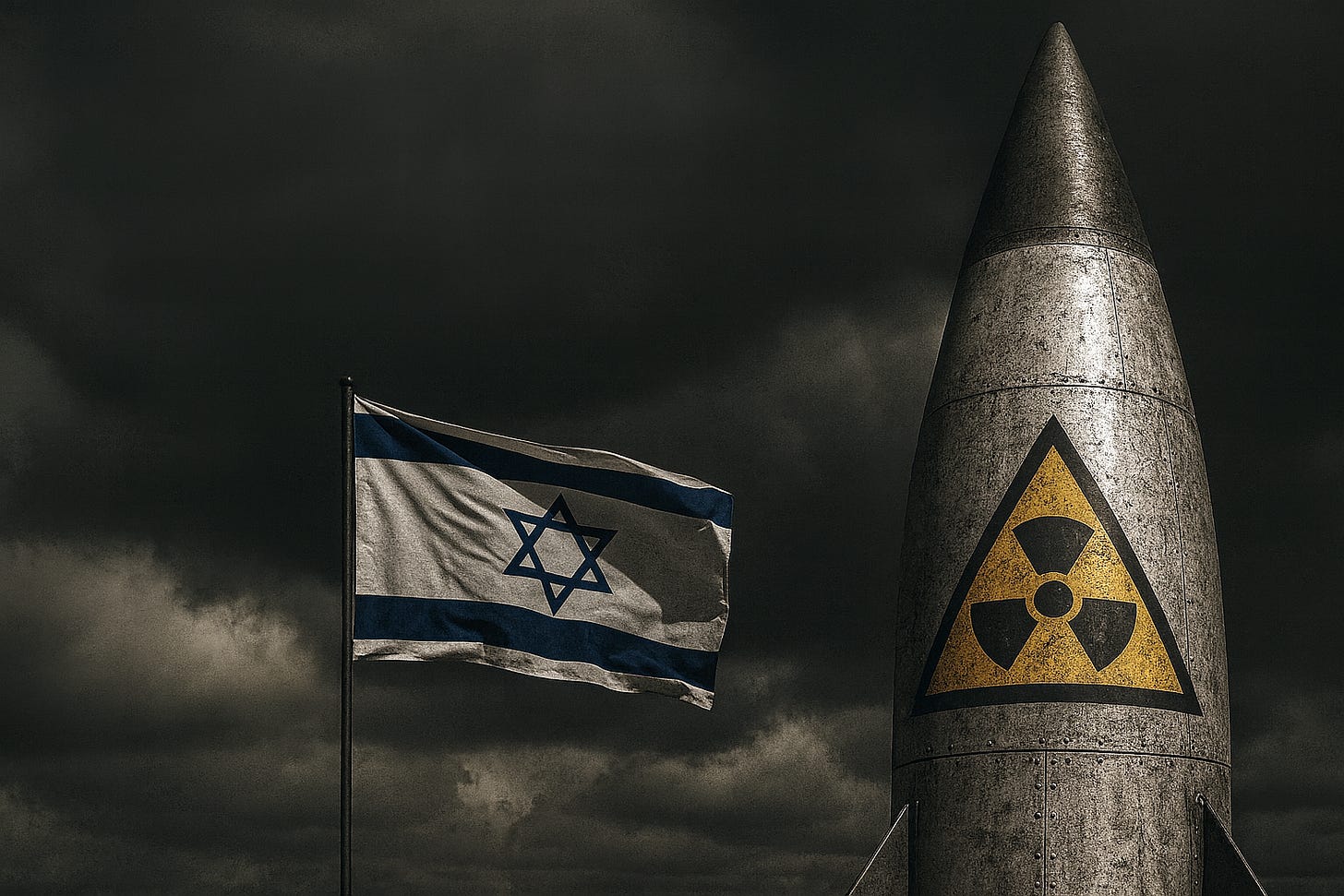No One Stops Israel Because Everyone Is Afraid
The Samson Shadow: How Israel's Nuclear Deterrent Silences the World
In the calculus of international diplomacy, there exists a silent, unspoken threat that looms over every conversation about Israel. It is not openly discussed in UN briefings or diplomatic cables, but its presence is felt across continents. It is the fear of the Samson Option.
Named after the biblical figure who brought down a temple upon himself and his…
Keep reading with a 7-day free trial
Subscribe to The Crustian Daily to keep reading this post and get 7 days of free access to the full post archives.



